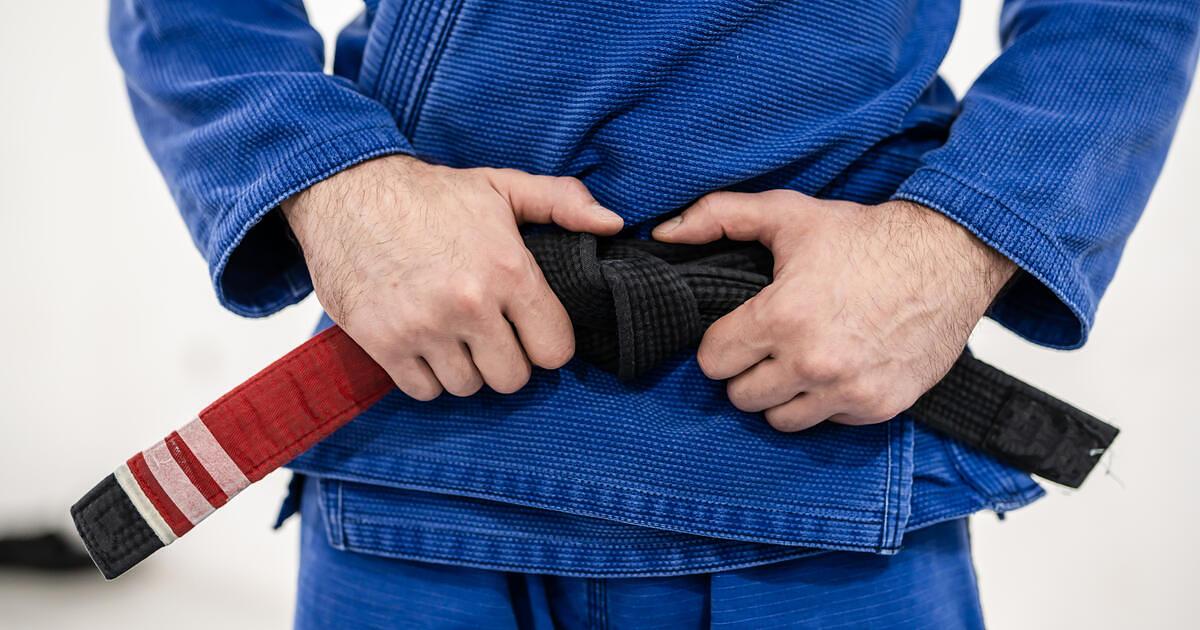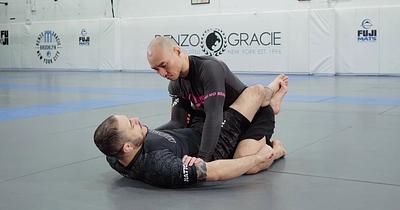How Long Does it Take to Earn a Black Belt in Brazilian Jiu-Jitsu?
by Team Digitsu
Updated: March 24, 2025

For many practitioners of Brazilian Jiu-Jitsu (BJJ), earning a black belt is the ultimate goal, representing a significant milestone in their training and a symbol of their mastery of the art. However, achieving a black belt in BJJ is no easy feat and requires a significant time commitment and dedication to consistent training. In this article, we will explore the factors that can affect the time it takes to earn a black belt in BJJ, the average time it takes to reach this goal, and the importance of consistently learning and applying techniques and concepts.
Factors that can affect the time it takes to earn a black belt in BJJ
Several factors can affect the time it takes to earn a black belt in BJJ. These include:
- Dedication to training: The more consistently and frequently a person trains, the faster they progress in their BJJ journey. Those who can train several times a week and consistently attend classes are likely to progress more quickly than those who only train occasionally.
- Frequency of training: The frequency of training also affects how quickly someone progresses in BJJ. Training several times a week is generally considered optimal for making steady progress, while training less often may result in slower progress.
- Quality of instruction: The quality of instruction a person receives can also impact their progress. High-quality instruction from experienced and knowledgeable instructors can help a person learn and apply the techniques and concepts of BJJ more effectively and efficiently.
- Natural aptitude for the sport: Some people may have a natural aptitude for BJJ, which can help them progress more quickly. However, even those who may not have a natural aptitude can still make progress and eventually earn a black belt with consistent training and dedication.
- Previous Grappling Experience: If you have experience in other grappling arts, such as wrestling or judo, you can progress more quickly than those without prior experience. For example, judo olympian, Travis Stevens, is known for obtaining BJJ black belt in 18 months, faster than anyone else.
- Breaks and time off: Taking breaks or time off from training can also affect progress. While taking breaks for rest and recovery is essential, extended breaks or long periods off can result in lost progress and may extend the time it takes to earn a black belt.
- Injuries: Injuries can also impact progress in BJJ. It is essential to properly care for injuries and follow medical advice to ensure that they do not cause long-term setbacks.
- Changing gyms: Changing gyms or instructors can also affect progress, as it may take time to adjust to a new training environment and build relationships with new instructors.
- Academy has many instructors: Some BJJ academies may have many instructors, which can make it harder for them to keep track of an individual student's progress. In these cases, it may take longer for a student to be considered for a black belt.
In summary, the time it takes to earn a black belt in BJJ will depend on a combination of factors, including the individual's dedication to training, the frequency of their training, the quality of their instruction, and their natural aptitude for the sport.
The average time it takes to earn a black belt in BJJ
On average, earning a black belt in BJJ can take anywhere from 7 to 15 years. This is based on the assumption that an individual is training consistently and frequently, receiving high-quality instruction, and making steady progress. However, it is important to note that the time it takes to earn a black belt can vary significantly from person to person and may be shorter or longer depending on the individual's circumstances. Some people may progress more quickly due to a natural aptitude for BJJ or a strong dedication to training, while others may take longer due to factors such as injuries or extended breaks from training.
There are exceptions to this rule. For example, BJ Penn and Caio Terra famously earned their black belts in just three years. These are rare cases, and for most, it will likely lead to burnout and injury trying to train 2x a day to reach this goal.
It is also worth noting that the time it takes to earn a black belt can vary from one BJJ school or academy to another. Some schools may have specific requirements that students must meet before being considered for a black belt, such as completing a certain number of training hours or winning a certain number of matches in competition. Additionally, some schools may have more stringent requirements for earning a black belt, which could extend the time it takes to reach this milestone.
Ultimately, the time it takes to earn a black belt in BJJ will depend on the individual's ability to consistently learn and apply the techniques and concepts of the sport and their dedication to continuously improving their skills. With consistent training and a commitment to improvement, anyone can achieve a black belt in BJJ, although it will likely require a significant time commitment.
Specific requirements for earning a black belt in BJJ at some schools
While there are no universal requirements for earning a black belt in BJJ, some schools or academies may have specific requirements that students must meet before being considered for this honor. These requirements can vary widely, but some common ones include:
- Completing a certain number of training hours: Some schools may require students to have a certain number of training hours or years before being considered for a black belt. This is often used to ensure that students have had sufficient time to learn and master the techniques and concepts of BJJ.
- Winning a certain number of matches in competition: Some schools may require students to compete in BJJ tournaments and win a certain number of matches before they can be considered for a black belt. This is often used to test students' skills and demonstrate their ability to apply what they have learned in a competitive setting.
- Demonstrating proficiency in specific techniques: Some schools may require students to demonstrate proficiency in specific techniques or positions before being considered for a black belt. This is often used to ensure that students have a strong foundation in the basic principles of BJJ.
While these requirements can vary from school to another, they are typically designed to ensure that students have a strong foundation in the techniques and concepts of BJJ and are ready to take on the responsibilities and challenges that come with earning a black belt.
Not all schools have specific requirements for earning a black belt, and in some cases, the decision to award a black belt may be based solely on the instructor's assessment of a student's skills and progress. Ultimately, the requirements for earning a black belt will depend on the policies and practices of the individual school or academy.
Importance of consistently learning and applying techniques and concepts, and dedication to improving skills
Earning a black belt in BJJ requires a significant time commitment and dedication to consistent training. It is not something that can be achieved overnight but instead requires a consistent and ongoing effort to learn and apply the techniques and concepts of the sport and a dedication to continuously improving one's skills.
To progress in BJJ, it is essential to consistently attend classes, practice the techniques and concepts taught, and seek opportunities to spar and compete with other practitioners. It is also essential to be open to constructive criticism and to continuously work on areas of weakness to become a well-rounded practitioner.
Ultimately, the key to earning a black belt in BJJ is to consistently learn and apply the sport's techniques and concepts and to continuously improve one's skills. With a consistent and dedicated approach to training, anyone can make progress and eventually earn a black belt in BJJ.
Conclusion
Earning a black belt in BJJ requires a significant time commitment and dedication to consistent training, but the rewards of achieving this milestone can be well worth the effort. A black belt represents a significant achievement and symbolizes a person's mastery of the art. It is the result of years of hard work, dedication, and consistent training, and it is something that can be proud of for a lifetime.


